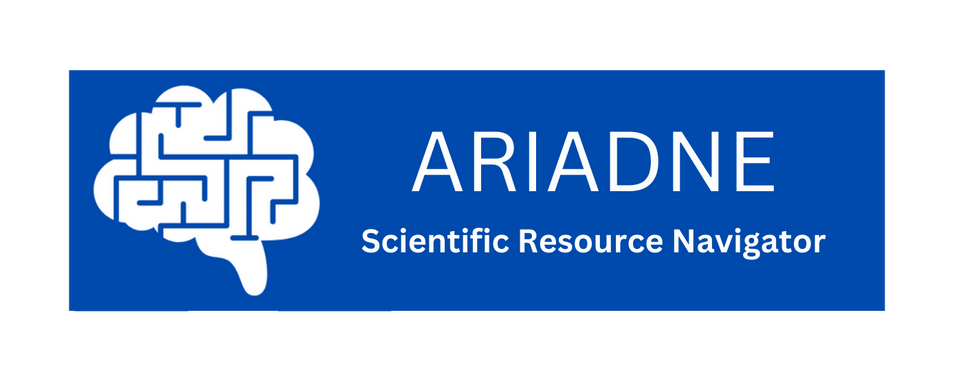Discussion and outlook#
With this comprehensive overview of the ten most important steps of a psychological research project and their inherent respective challenges, we present our tool ARIADNE as a tool to support the research process. By explicitly highlighting open-access resources, we level the playing field for researchers from underprivileged countries or institutions. We also facilitate good practice through open, fair, and reproducible research methods, and empower researchers of all career stages to conduct their research projects with the help of this living and dynamic open resource platform.
Providing an accessible and structured overview of high-quality resources is of utmost importance, particularly since institutions, funding agencies, and other stakeholders are putting in efforts to improve scientific quality (see, for instance, the ➜ Declaration on Research Assessment, DORA). Improving research quality through collections such as ARIADNE will thus be an important contribution to kickstart and advance the careers of ECRs. Beyond ECRs, we hope that our tool can be widely distributed to researchers of all levels starting a new project, including supervisors sharing it with their employees. We also actively call on experienced researchers from all fields of psychological science to contribute their own tried-and-tested tools to our database. ARIADNE contributes to the seamless sharing of resources and guidelines, streamlining research workflows across the globe. In addition, the integration of open-source technological innovations, exemplified by the ARIADNE project, marks a pivotal advancement in psychological research methodologies. This initiative is part of a broader movement towards digital solutions that facilitate comprehensive and reproducible science (see e.g., the ARTEM-IS project (Agreed Reporting Template for EEG Methodology - International Standard for documenting studies on Event-Related Potentials; Web App: https://artemis.incf.org; Šoškić et al., 2023). The principles at the heart of ARIADNE—openness, reproducibility, and collaboration—are echoed in ARTEM-IS’s approach, emphasizing the critical role of standardized practices in advancing the field. Other grassroots researcher communities and initiatives such as Chinese Open Science Network (COSN; Jin et al., 2023; see also the list of scholarly and topical communities in ARIADNE) can amplify the reach and impact of tools such as ours. This unified approach underscores a commitment to an open and accessible scientific community and demonstrates how technological innovations are instrumental in shaping a future where psychological research is more transparent, efficient, and inclusive.
Finally, we would like to discuss a few limitations associated with ARIADNE. First, the resources provided in ARIADNE serve as curated recommendations from the scientific community. As a team of ten researchers at different career levels, including PhD students, postdocs, and professors, we bring extensive experience and knowledge in using many of these resources. However, it is important for researchers to consider their own preferences and requirements when choosing resources for their experiments. While we cannot guarantee the effectiveness, suitability, or long-term availability of any individual resource, we will regularly update and add resources with a dynamic, quality-driven approach. Researchers are nevertheless encouraged to exercise their own judgment and discretion when selecting resources and conducting experiments.
Second, we want to mention a few challenges when creating ARIADNE, as these insights may be valuable for users. Key issues involved determining the most effective and sustainable way to present resources (e.g., lists vs. nodes), navigating the variability in individuals’ understanding of a typical research workflow (e.g., which resource belongs in which step), and establishing clear exclusion criteria to define what constitutes an ARIADNE resource and is included in the tool (i.e., avoiding non-permanent links).
Third, we would like to stress that while we have provided a comprehensive selection of key tools and resources, including all possible tools within this paper would be impractical. Instead, the present version of the tool is a starting point (i.e., not static but continually evolves as new tools are added). We actively encourage other researchers to add tools from their fields, or replicate our methods, code, and infrastructure to create field-specific tools. This process ensures that the resource remains up-to-date and relevant, accommodating the latest developments in research tools and methodologies. Hence, future versions will include resources and information regarding supervision and mentoring (Jabre et al., 2021), academia beyond the PhD (postdoc-level: Bourne & Friedberg, 2006; professor-level: Tregoning & McDermott, 2020), lab life (Maestre, 2019), building up collaborations, networking and lab exchanges (Vicens & Bourne, 2007), how to deal with article rejection (Nature Human Behaviour, 2021), as well as time management, progress tracking, and grant writing (Bourne & Chalupa, 2006).
In conclusion, we believe that this resource encourages not only ECRs, but also more senior researchers, to delve into new research projects, using our tool as a starting point. ARIADNE alleviates the challenges attached to starting out in science, prevents a constant, frustrating “re-invention of the wheel”, and provides helpful support during all stages of the research cycle – for everyone.
